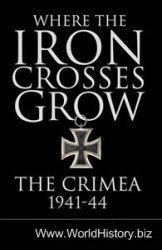Chatton is best known today for his criticisms of and influence on Ockham’s philosophy. In fact, the relationship between these thinkers is such that scholars have often had to turn to Chatton’s work to fully understand the development and shape of Ockham’s views. (The relative dating of Ockham’s writings, for example, is established by reference to the three-stage development in his theory of concepts, a development, which as explained above, is due to Chatton’s influence.) For this same reason, the areas of Chatton’s philosophical thought that have received the most attention correspond to those aspects of Ockham’s thought that have most attracted scholarly interest - namely, issues in metaphysics, cognitive psychology, and, to a lesser extent, questions about the will and moral responsibility.
There are, however, a number of other areas to which Chatton makes significant contributions. In natural philosophy, for example, he is among the few medieval proponents of indivisibilism (i. e., the view that continua are literally composed of indivisible elements). Again, he treats at some length the distinction between permanent and successive entities and offers an important defense, against Ockham, of the coherence of the notion of a successive entity (entia successiva). Chatton also seems to have played a significant role in a number of fourteenth-century debates in philosophical theology, including how to reconcile the Christine doctrine of the Trinity with Aristotelian syllogistic logic and the nature of sacramental efficacy (the latter of which was recalled and cited some 200 years later at the Council of Trent).
It will be some time yet before any systematic presentation or evaluation of Chatton’s philosophical oeuvre can be undertaken. There is, nevertheless, good reason to expect that the recent publication of critical editions of Chatton’s Sentences commentaries (the Reportatio appeared in 2002-2005, the Lectura in 2007-2009) together with increased scholarly interest in the fourteenth century will significantly advance both the recovery of his thought and our understanding of his place in the broader development of late medieval philosophy.
See also: > Adam Wodeham > Certainty > Consciousness
> Future Contingents > Intuitive and Abstractive Cognition > John Duns Scotus > Mental Word/Concepts
> Peter Auriol > Trinitarian Logic > Voluntarism and Intellectualism > William of Ockham




 World History
World History









